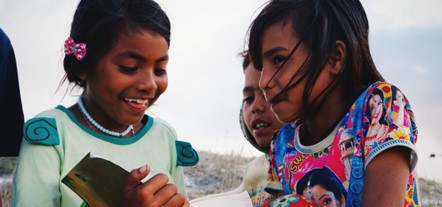Download full report (in Spanish)
Digital inequality along multiple dimensions
Digital inequality manifests itself along various dimensions, reflecting disparities between urban and rural areas, regions, age groups, and gender. Rural areas and the North and Caribbean regions (Huetar Norte and Huetar Atlántica) experience significant lags in access, ownership, skills, and parental mediation. These areas are characterised by a low Human Development index. Adolescents, while exhibiting increased usage and skills, receive less parental mediation compared to the 9 to 12 age group. Gender differences are also apparent, with boys leaning towards entertainment-oriented use and content creation, while girls face more risky online situations, particularly of a sexual nature.
Children’s digital activities and skills
There is a notable increase in the earlier and more frequent use of mobile phones within school settings, possibly influenced by the pandemic-induced surge in device use. However, computer ownership has decreased compared to 2018, which could be explained by a number of factors, including the closure of the Educational Informatics Program (Programa de Informática Educativa) by the Ministry of Education in 2022 which left thousands of children without access to a computer; and the growing social inequality in the country along with the increase in poverty.
Entertainment, learning, and communication remain the primary uses of digital devices, with learning-oriented usage gaining prominence, reflecting the impact of digital inequality. Surprisingly, there is a decrease in digital skills compared to the 2018 survey. Caregivers and children report similar levels of digital skills, indicating a shared vulnerability to problematic phone usage.
Educational institutions play a limited role in fostering digital skills, with minimal use of the internet for pedagogical purposes and insufficient teacher guidance. The lack of systematic integration in classrooms and active mediation hinders the enhancement of digital opportunities and skills.
Online risks
The survey highlights the prevalence of online risks, with a significant percentage reporting discriminatory experiences (33%), hurtful treatment online (9%), and receiving sexual images online (12%). Girls, in particular, are more susceptible to feeling upset from the negative experiences, especially those involving sexual content. Contacting unknown people online (13%) and meeting them (5%), emphasises the need for increased online safety measures and awareness.
In conclusion, the 2023 Kids Online survey underscores the urgency to address digital inequality, enhance digital literacy, and fortify online safety measures, particularly in educational settings. By understanding the nuanced challenges faced by Costa Rican children and adolescents, stakeholders can collaboratively work towards creating a safer, more equitable digital environment for the next generation.
Study details
The study is a collaborative effort between the University of Costa Rica and the Paniamor Foundation, supported by international institutions like UNICEF, UNFPA, Canada’s International Bureau for Children’s Rights, ECLAC, and the Costa Rican Ministry of Science and Technology. This is the second Global Kids Online survey in Costa Rica. The first one was conducted in 2019.
| Sample Characteristics | 1200 children, aged between 9 and 17; 47% of which are between 9 and 12 | |||
| 48% female | 51% male | 1% none of the aforementioned options | ||
| 73% from urban areas | 27% from rural areas | |||
| 97% attend primary or secondary school | 3% do not attend primary or secondary school | |||
| Sampling Method | Stratified, proportional, multistage, random sampling | |||
| Maximum Error | 3% | |||
| Confidence Level | 95% | |||
| Sample Design | National Institute of Statistics and Census (INEC) | |||
| Survey Type | National Household In-Person Survey | |||
Further materials
Download full report (in Spanish)
Findings from Kids Online Costa Rica 2019
The research team
The research has been carried out by the Institute for Psychological Research of the University of Costa Rica (IIP-UCR) and the Paniamor Foundation.
Coordinators: Prof Dr Rolando Pérez-Sánchez (IIP-UCR) and Oscar Valverde (Paniamor Fundation).
Post author: Rolando Pérez-Sánchez








